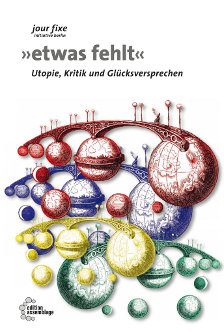 [Diesen Artikel gibt es auch auf Deutsch.]
[Diesen Artikel gibt es auch auf Deutsch.]
[This text was first published in German in a collection on utopian thinking and social emancipation edited by the Berlin jour fixe initiative. “The most tangible utopia of this volume,” the editors write. “Christian Siefkes gives his voice to somebody who lives in a not-too-distant future, where the ideas of commons-based peer production have spread beyond the Internet to re-organize production and reproduction in all areas of life on the basis of decentralized, non-hierarchical, voluntary self-organization.” Technologically, not much utopian thinking was needed – all the technologies I describe already exist today, if sometimes in more basic forms. The social changes, however, are radical. License: CC-BY-SA. You can also read the complete article as PDF or EPUB.]
Kitchen Fabrication
We produce in the kitchen or in the bathroom. Most people have some fabrication bots at home. The popular 3D printer/mill combines a 3D printer with a computer-controlled milling machine. 3D printers produce three-dimensional objects by printing multiple layers of bioplastics, metal, or ceramic on top of each other, until the desired object is complete. Within several hours, typical home 3D printers can print objects up to 50 by 40 by 30 centimeters large. That’s big enough to print most durable households items, whether crockery, cutlery, games and toys, or tools. Electrical and electronic appliances are made in the same way, except for the actual electric or lighting elements. It’s also common to print replacement parts if something breaks down or doesn’t fit.
(mehr …)
 (Das Open Source it Manual gibt es auch auf deutsch)
(Das Open Source it Manual gibt es auch auf deutsch)

 [Repost with permission (ask
[Repost with permission (ask